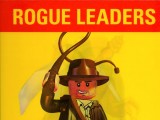LucasArts recently re-released their long-running, beloved Jedi Knight series digitally on Steam to a rather ecstatic response to boot; only, a major wrench got thrown in the gears when the parties responsible failed to appropriately revise the games for the most current generation of operating systems. As a result, the three earliest releases – Dark Forces, Jedi Knight and its expansion disc, Mysteries of the Sith – suffer from instability, incompatibility, crashes, bugs and other lesser issues.

This is a rather shocking turn of events after a wildly successful reintroduction of the classic LucasArts back catalogue to audiences old and new, and indeed strikingly qualitatively different from the previous batch of releases, especially so when taking into account that fixes to some of the aforementioned issues are in fact readily available! For instance, players who already own the games on CD can simply extract the original wave audio for their background music to work (thanks Richard!).
It is only natural, however, to find the company trying to think up ways to maintain the newfound revenue flow and subsequently benefit from the excitement caused by these re-releases. Therefore, it’s also all the more disappointing that oversights such as the aforementioned might considerably affect the public perception of the company’s current endeavours.

There may also be a specific, underlying reason as to why such a difference in-between the apparent quality of the re-release treatment exists: Earlier this year, the wonderful industry veteran and MAME developer Aaron Giles revealed that he had been commissioned to work on a few titles from the company’s back catalogue. Perhaps LucasArts have Giles, the self-described “completist”, to thank for laying out the conversion groundwork? Perhaps the digital launch for the SCUMM titles was as successful as it was because of heartfelt attention that Giles offered?
Speculation aside, I would like us to sequence into the concept of goodwill. The OED defines the term broadly into two distinct forms of usage: Commercial, or “the possession of a ready-formed ‘connexion’ of customers, considered as an element in the saleable value of a business, additional to the value of the plant, stock-in-trade, book-debts, etc” and attributive, or “favourable or kindly regard; favour, benevolence”.
In terms of the current model for gaming business, these two descriptions obviously go hand-in-hand – the question is, how, exactly? Beyond developing and shipping quality products, can a company accumulate goodwill via a string of genre-defining releases? Can goodwill be lost via the cancellation of announced titles, overall poor effort, rehashing or even selling out? And finally, can goodwill be potentially regained via rehabilitation? Do temporal and/or intentional factors count?

After all, LucasArts – or rather, LucasFilm Games and LucasArts Entertainment Company – were originally, as illustrated in Rob Smith’s book, “Rogue Leaders”, a trailblazer and an industry leader, both technically and artistically. The company pioneered the use of fractal graphics with Rescue on Fractalus! and Ballblazer, also both originating and popularizing the point-and-click adventure gameplay with Maniac Mansion and Zak McKracken. They even created the forefather of the online community, Habitat.
Sadly, the book also encapsulates the LucasArts days of Ron Gilbert, Tim Schafer, Hal Barwood, David Grossman, Steve Purcell, Aric Wilmunder, Noah Falstein, Larry Ahern, Michael Z. Land, Peter Chan, Peter McConnell, Clint Bajakian, Sean Clark and Bill Tiller. In a tragicomic display, the entire second half of “Rogue Leaders” is almost entirely dedicated to Star Wars, effectively drawing down the curtains on LucasArts as we knew it, both metaphorically and physically.
Reaching the end of the book can be a disappointing experience; after all, since the release of Tim Schafer’s gloriously creative Grim Fandango eleven years ago, the company’s output has bordered on the disenchanted. Previous LucasArts CEO Jim Ward’s tenure from 2004 to 2008 was especially formative in terms of our current understanding of the company: After all, Ward’s focus was always, first and foremost, on fiscal responsibility, performance and profit. No matter how much the public perception of adventure games as commercially unviable was the result of spin doctoring, stereotyping and the constant propagation of a self-fulfilling prophecy, they simply did not seem to fit in the equation.
In a leaked internal memo from July 2004, for instance, Ward dismisses, in illustrative fashion, the company’s yearly bonuses after a mere eight weeks on the job:
Our performance, qualitatively, strategically and financially, just isn’t there. One of the primary consequences of this lack of performance is that we have to make some tough decisions, like this one, to get back on track. 1)http://web.archive.org/web/20040803003025/http://www.internalmemos.com/memos/memodetails.php?memo_id=2344
In a June 2006 interview with MCV, Ward chose to focus on the importance of competitive strategy:
“We’ve adopted new philosophies at LucasArts which, frankly, the whole industry should adopt. We make kick-ass games, but on time and on budget. Failure on any one of those three points is failure for the project.” 2)http://www.edge-online.com/news/ward-slams-sloppy-publishing “We are very serious about that strategy and we’re able to deliver on it. As a result we’re successful on a revenue and a bottom line basis.” 3)http://www.mixnmojo.com/php/news/showfile.php?id=2079&category=lucasartsnews
Even in leaving his post, Ward underlined performative factors:
“Together we’ve rebooted the company and set LucasArts on a path to even greater success. This is a fantastic team and they are positioned for their best year ever.” 4)http://kotaku.com/351775/lucasarts-president-talks-about-his-departure

After an ill-fated string of attempts to revive old franchises (Full Throttle: Payback, Full Throttle: Hell on Wheels, Sam & Max: Freelance Police and Indiana Jones & The Staff of Kings, respectively) resulted in a devastating PR fallout during Ward’s reign, antagonistic reactions to the company’s apparent misdirection reached an all-time high. A 2004 SCUMM Bar “Open Letter to LucasArts” rather candidly encapsulates the fears and worries that many adventure enthusiasts wore on their sleeves. With LucasArts’ reservoir of goodwill trickling thin in the form of lawsuits and cease & desist letters against innocuous fangames, even a website solely dedicated to LucasArts bashing appeared.
In light of these past years, then, should we perchance be alarmed by this recent misfire with the Jedi Knight collection? Let’s admit it: Lending out Guybrush over to Telltale Games makes complete sense now, but who in their right mind would have expected LucasArts to part with him just a year ago? No way, Jose. No way. I wouldn’t oppose in the least if we all were to agree that LucasArts, as a corporate entity, simply painted itself in the corner, and ultimately had no other possibility but to change – or wither away.
Nevertheless, I would not be opposed to perceiving the recent changes in management as a natural culmination of the company’s know-how, perseverance and heritage, either. After so many years, who’s to say? Either way, the company seems focused, perhaps more so than in over a decade, on attempting to carve out an all-new new identity after being creatively lost for so long in a galaxy far far away. Certainly, the SCUMM re-releases, the Monkey Island Special Edition, and their latest title, Lucidity 5)http://www.lucasarts.com/company/release/news20090911.html, all seem to point towards the latter. The new LucasArts CEO, Darrell Rodriguez, certainly echoes this sentiment in an interview with Develop:
“We’ve also been able to put an IP pipeline in the works with a team dedicated to creating new IP and new ways to reinvigorate some of our favorite heritage products such as the recently announced Monkey Island franchise.” 6)http://www.develop-online.net/features/490/Lucas-Smarts
References
…guess who totally forgot background music doesn’t work for Dark Forces or Mysteries o the Sith during the most recent Steam sale for the titles…